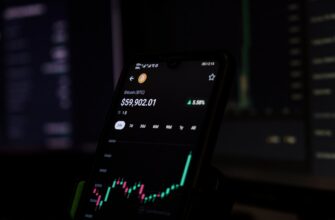Cryptocurrency has revolutionized global finance, but its regulation varies by country. In Indonesia, the Otoritas Jasa Keuangan (OJK) plays a pivotal role in overseeing digital assets. This comprehensive guide explores OJK’s cryptocurrency regulations, their impact on investors, and what the future holds for Indonesia’s crypto landscape.
## Understanding OJK: Indonesia’s Financial Watchdog
The Otoritas Jasa Keuangan (OJK) is Indonesia’s Financial Services Authority, established in 2011 to regulate and supervise:
– Banking and non-banking financial institutions
– Capital markets
– Insurance sectors
– Emerging fintech innovations including cryptocurrency
OJK operates under Law No. 21/2011 with a mandate to ensure financial system stability and consumer protection. While Bank Indonesia handles payment systems, OJK oversees crypto asset trading as commodities under Bappebti’s supervision.
## OJK’s Regulatory Stance on Cryptocurrency
Indonesia doesn’t recognize cryptocurrency as legal tender but regulates it as a tradable commodity. Key OJK-backed regulations include:
1. **Bappebti Regulation No. 5/2019**: Classifies crypto as digital assets traded on physical markets
2. **OJK Circular Letter No. 13/2021**: Mandates crypto exchanges to register with Bappebti
3. **Anti-Money Laundering Compliance**: Requires KYC verification for all traders
4. **Taxation Framework**: 0.1% income tax and 0.11% VAT on crypto transactions
These rules aim to curb fraud while fostering innovation in Indonesia’s rapidly growing crypto market.
## How OJK-Regulated Crypto Exchanges Operate
Platforms like Indodax and Tokocrypto operate under strict OJK/Bappebti supervision. Compliance requirements include:
– **Licensing**: Mandatory Bappebti registration with Rp100 billion minimum capital
– **Security Protocols**: 95% of user funds in cold storage
– **Transparency**: Regular audits and real-time transaction reporting
– **Consumer Protection**: Segregated user accounts and dispute resolution mechanisms
Non-compliant platforms face license revocation and legal action under OJK oversight.
## Investor Implications: Navigating OJK’s Rules
For Indonesian crypto investors, OJK regulations bring both security and limitations:
**Benefits**
– Legal protection against fraud and exchange collapses
– Standardized dispute resolution channels
– Reduced money laundering risks
**Restrictions**
– Ban on crypto payments for goods/services
– Limited access to decentralized exchanges (DEXs)
– Mandatory reporting for transactions over Rp500 million
Always verify exchange registration status via Bappebti’s official website before trading.
## Future of Cryptocurrency Regulation Under OJK
OJK is evolving its approach with these anticipated developments:
1. **2024 Regulatory Shift**: Planned transition of crypto oversight from Bappebti to OJK
2. **CBDC Integration**: Testing digital rupiah alongside private cryptocurrencies
3. **DeFi Framework**: Drafting regulations for decentralized finance platforms
4. **Green Crypto Standards**: Environmental requirements for mining operations
These moves signal Indonesia’s commitment to balanced innovation and risk management.
## Frequently Asked Questions
### Is cryptocurrency legal in Indonesia?
Yes, as a commodity under Bappebti/OJK supervision, but not as legal tender. Using crypto for payments remains prohibited.
### How do I verify if a crypto exchange is OJK-compliant?
Check Bappebti’s official registry (bappebti.go.id) for licensed platforms. Registered exchanges display authorization numbers on their websites.
### What taxes apply to cryptocurrency in Indonesia?
Two primary taxes:
– 0.1% income tax on capital gains
– 0.11% VAT on transaction fees
Report earnings annually through SPT tax returns.
### Can foreigners trade crypto on Indonesian platforms?
Foreigners with Indonesian bank accounts and KYC verification can trade on registered exchanges, subject to the same tax rules as residents.
### Will OJK ban cryptocurrencies?
Unlikely. OJK emphasizes regulation over prohibition, focusing on investor protection and AML controls while developing comprehensive frameworks for digital assets.
Indonesia’s cryptocurrency landscape continues to mature under OJK’s stewardship. By balancing innovation with robust oversight, OJK aims to position Indonesia as a leader in Southeast Asia’s digital economy while safeguarding its financial ecosystem. Always consult official OJK channels for the latest regulatory updates before engaging in crypto activities.








